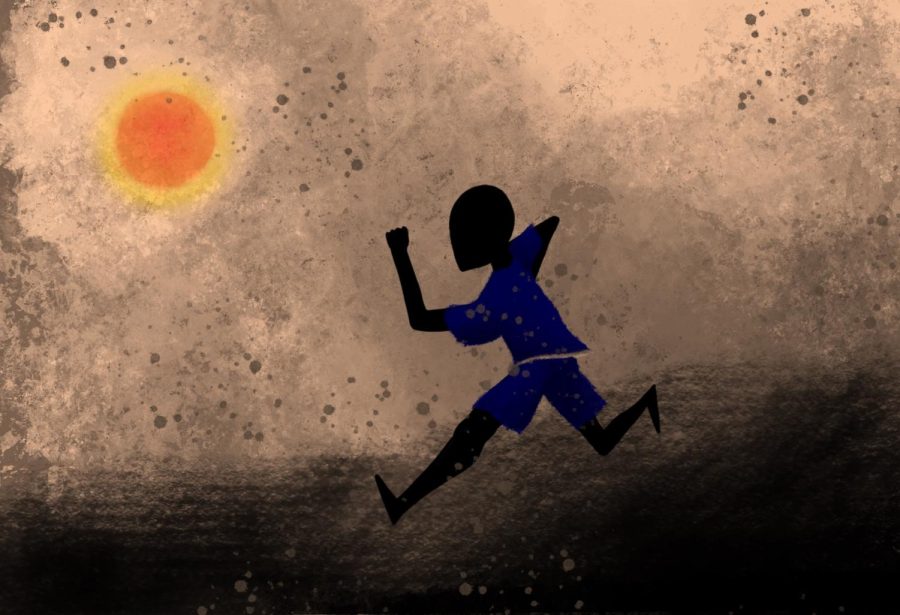Poor Air Quality Endangers PE Student Health
Students participate in PE during unhealthy air conditions.
With the frequency of wildfires and subsequent unhealthy air quality in California, students’ short-term and long-term health is being put at risk when PE is held in smoke.
“When PE is held in the smoke, it’s a lot harder to breathe. When you run, you run out of breath a lot faster,” said freshman Abigail Tichenor.
After PE, instead of feeling energized and ready to focus, Tichenor said the smoke has the opposite effect: “You just kind of feel groggy. I have PE last [period] so [I don’t have] to go to [another] class, but if I go from PE to water polo, I’m a lot more tired.” This is especially challenging for students who have to go to another class and try to focus and learn while battling the side effects of exercise in the smoke.
Freshman Tabi Bearce said, “After I participate [in PE] when it’s smoky out, sometimes I feel lightheaded or have a headache, or my throat will feel scratchy from inhaling smoke. It makes me concerned about my health and how it’s affecting me, not just in the short term but in the long term.”
Freshman Madeline Martindale agreed that it is hard to focus in class after participating in the smoke. “I feel lightheaded and tired, [because of the air quality],” she said.
Students shouldn’t be risking their health participating in PE during smoke days, especially since experts don’t know what the long-term effects of inhaling wildfire smoke have on our health.
“We use the AQI from Purple Air and AirNow.gov. If the [AQI] reaches 150 then we cancel [PE and the] kids need to be inside, staying still. If [the AQI] is over 100, there’s no exertion. You wouldn’t be doing a lot of exercises, [but there] could be a demonstration of a skill or explanation of a game,” said Principal Walker.
While PE is sometimes canceled because of smoke, there have also been times when it is still held without limited exertion, even though the AQI is greater than 100.
Walker said that it is his responsibility to inform the PE teachers when class needs to be canceled due to unhealthy air quality. “[The PE teachers] can also track [the AQI] but it’s difficult when they’re outside on the field…There’s a collaboration there but ultimately, it’s my call here,” said Walker.
The PE teachers should be held accountable for personally checking the air quality index before continuing rigorous activity in PE. They should not be able to excuse the cancelation of PE due to not receiving an email from Principal Walker, which has happened before. Since Principal Walker has numerous other important duties as the principal, giving PE teachers the power to cancel PE if they have not received an email from Principal Walker and the AQI has reached unhealthy levels, would lead to improved health and safety of the students.
PE teachers should have the autonomy to decide for themselves and their students whether or not PE needs to be held without exertion or canceled completely according to the AQI, ensuring that students aren’t risking their health by participating in PE outside when the air quality is poor.
Your donation will support the student journalists of Campolindo High School's The Claw. Your contribution will allow us to produce more issues and cover our annual website hosting costs.

When she was 4 years old, Claire Birdsey was enrolled in her first dance class and has been hooked ever since. Dancing at CAPA in Moraga since 2017, she...

Senior Karina Aza has been drawing since before she can remember, honing her traditional art skills: “[art is] something I’ve been doing since I was...


